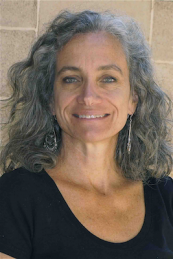Description:
Research demonstrates that mindfulness and self-compassion are significantly linked to increased wellbeing and decreased stress in caregivers. Even more promising, both mindfulness and self-compassion have been demonstrated to be mutable traits–cultivated through the practice of guided meditations and daily informal exercises and meditations. In this workshop, Karen Bluth and Laura Prochnow Phillips will provide the foundation of mindful self-compassion practice. Participants will gain an understanding of the concepts of mindfulness and self-compassion, including the three components of self-compassion, and directly experience a number of practices which cultivate both mindfulness and self-compassion. These practices can be critical to caregivers of children with special needs by providing tools which enable in-the-moment self-care.
Trainers:
 Dr. Karen Bluth is faculty at the University of North Carolina at Chapel Hill in the Program on Integrative Medicine and a certified instructor with Laura Prochnow Phillips of Mindful Self-Compassion, an internationally acclaimed 8 week course created by Dr. Kristin Neff and Dr. Chris Germer. She is co-creator of the curriculum Making Friends with Yourself: A Mindful Self-Compassion Program for Teens, the teen adaptation of Mindful Self-Compassion for adults, and author of the forthcoming book “The Self-Compassion Workbook for Teens: Mindfulness and Compassion Skills to Overcome Self-Criticism and Embrace Who You Are” (New Harbinger Publishers). Dr. Bluth’s research focuses on the roles that self-compassion and mindfulness play in promoting well-being in youth; a new line of her research centers on the role of self-compassion in caregiving. In addition, she is Associate Editor of the academic journal Mindfulness and currently co-editing a special issue of the academic journal Self and Identity on self-compassion with Dr. Kristin Neff, pioneer in the research on self-compassion.
Dr. Karen Bluth is faculty at the University of North Carolina at Chapel Hill in the Program on Integrative Medicine and a certified instructor with Laura Prochnow Phillips of Mindful Self-Compassion, an internationally acclaimed 8 week course created by Dr. Kristin Neff and Dr. Chris Germer. She is co-creator of the curriculum Making Friends with Yourself: A Mindful Self-Compassion Program for Teens, the teen adaptation of Mindful Self-Compassion for adults, and author of the forthcoming book “The Self-Compassion Workbook for Teens: Mindfulness and Compassion Skills to Overcome Self-Criticism and Embrace Who You Are” (New Harbinger Publishers). Dr. Bluth’s research focuses on the roles that self-compassion and mindfulness play in promoting well-being in youth; a new line of her research centers on the role of self-compassion in caregiving. In addition, she is Associate Editor of the academic journal Mindfulness and currently co-editing a special issue of the academic journal Self and Identity on self-compassion with Dr. Kristin Neff, pioneer in the research on self-compassion.
 Laura Prochnow Phillips is a certified mindful self-compassion instructor and has taught more than 20 MSC classes with her co-teacher, Dr. Karen Bluth. Laura was first introduced to MSC through her work as a health, wellness, and lifestyle coach. After completing her training in the Integrative Health Coaching Professional Training program at Duke Integrative Medicine, Laura entered into private practice, primarily working with women at midlife. Laura has maintained a personal mindfulness practice for 20 years.
Laura Prochnow Phillips is a certified mindful self-compassion instructor and has taught more than 20 MSC classes with her co-teacher, Dr. Karen Bluth. Laura was first introduced to MSC through her work as a health, wellness, and lifestyle coach. After completing her training in the Integrative Health Coaching Professional Training program at Duke Integrative Medicine, Laura entered into private practice, primarily working with women at midlife. Laura has maintained a personal mindfulness practice for 20 years.
Learning Objectives:
At the completion of this workshop, participants will be able to:
- Describe 3 benefits of mindfulness and self-compassion practice on wellbeing of caregivers.
- Identify the 3 components of self-compassion.
- Refute at least 2 common misgivings about self-compassion.
- Engage in at least 1 practice that cultivates mindfulness, and one that cultivates self-compassion.
References:
- Baer, R. A., Lykins, E. B., & Peters, J. R. (2012). Mindfulness and selfcompassion as predictors of psychological wellbeing in long-term meditators and matched nonmeditators. The Journal of PositivePsychology, 7(3), 230–238. doi:10.1080/17439760.2012.674548.
- Benn, R., Akiva, T., Arel, S., & Roeser, R. W. (2012, March 12). Mindfulness Training Effects for Parents and Educators of Children With Special Needs. Developmental Psychology.
- Siman-Tov, A., & Kaniel, S. (2011). Stress and personal resource as predictors of the adjustment of parents to autistic children: A multivariate model. Journal of Autism and Developmental Disorders,
UNC Chapel Hill – Family Focus and Disability Lecture Series Programs 